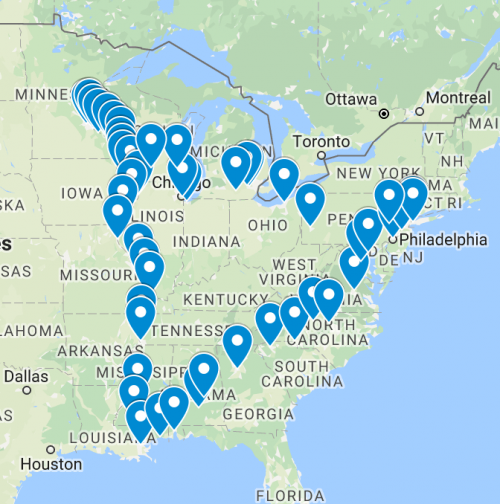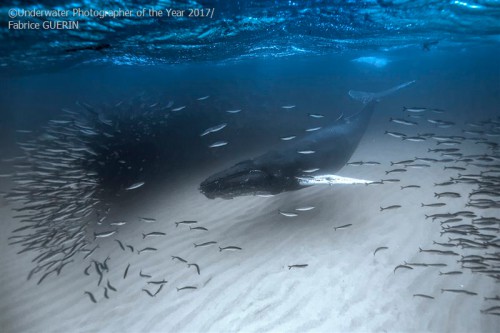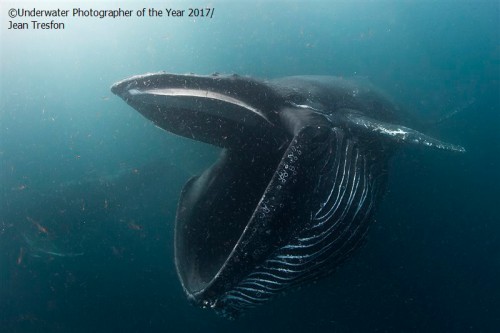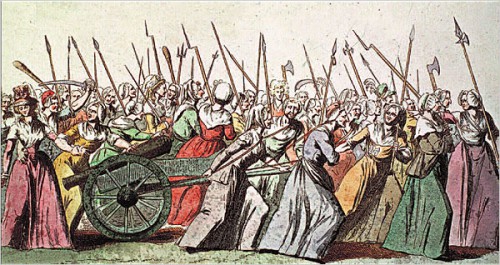I have to admit, I sometimes wonder if they were all raised by Harry Harlow’s fake mothers made of chicken wire and cotton, because they sure seem to be lacking in something. This guy at the Federalist, Hans Fiene, has an essay that reads like something from an alien.
The latest numbers on American birth rates are in, and they yield only one reasonable conclusion: All of us need to start having more babies or else the upcoming demographic tsunami will consume our nation, cripple our social programs, and leave us with a future so bleak that our only source of joy will be the moment we’re chosen to receive the sweet, fatal kiss of the Obamacare Death Panels, the Trumpcare Firing Squads, or the OprahCare Hemlock Squadrons.
We do not have a problem of underpopulation — we’re doing just fine, maybe growing too fast for our environment. The “demographic shift” is merely the typical natural change in a population over time. There was an era when there were relatively few Irish in North America, and now there were lots of people of Irish descent. It wasn’t a tsunami, it didn’t cripple us. It’ll be the same with an increase in the proportion of Latin and black families — we’ll be fine. There is a kind of demographic tsunami that would be destructive, like the one that overwhelmed the Indian population of this continent, but there’s no threat of that. Maybe Mr Fiene has a guilty conscience?
Maybe the real problem is his use of the word “us” — it doesn’t seem to have the same inclusive meaning to him that it does to me. He’s using the racist “us”, referring to only people with his skin color.
What is his solution to the “tsunami”? He wants “us”, you know, the white “us”, to have more children than the brown “them”. How does he hope to do that?
Perhaps I’m overstating the danger a bit, but the point remains: Americans need to raise our sagging birth rates. One of the best ways we can do so is by reversing the trend of Americans waiting longer to get married. So, apart from tearing down America’s institutions of higher education, which tend to slow down the recitation of wedding vows, how do we do that? It’s quite simple. We tear down the Friend Zone.
But we Americans don’t have a sagging birth rate…oh, wait, he’s using the racist version of “Americans”, that doesn’t include every American citizen.
I’m relieved that he’s not advocating tearing down universities, but his reasoning is weird. Having children a little later is a fine idea, especially since child-rearing is a difficult and important job that would benefit from a little more emotional and intellectual maturity (trust me, I work with 18-22 year olds all the time, and there’s a huge amount of growth in that span. Because someone is physically capable of getting pregnant at 14 does not necessarily mean they’re mature enough to raise them well…but then, if your vision of parenting is chicken wire and cloth, you may not get that).
Instead, he thinks we need to tear down the Friend Zone. There’s that strange, alien “we” again — now it seems to exclude women. “We” White Men are going to insist that if “You” Women want to have dinner with us, you must also consent to be impregnated.
Every year, countless young men find themselves trapped in the Friend Zone, a prison where women place any man they deem worthy of their time but not their hearts, men they’d love to have dinner with but, for whatever reason, don’t want to kiss goodnight.
Being caught in the Friend Zone is an inarguable drag on fertility rates, as a man who spends several years pledging his heart to a woman who will never have his children is also a man who most likely won’t procreate with anyone else during that time of incarceration. Free him to find a woman who actually wants to marry him, however, and he’ll have several more years to sire children who will laugh, create, sing, fill the world with love and, most importantly, pay into Social Security.
Quite simply, for the sake of our future, the Friend Zone must be destroyed. For the Friend Zone to be destroyed, women must accept the following truths: you don’t have any guy friends and, in fact, you can’t have any guy friends.
I can simplify that rule a lot. Don’t be friends with Hans Fiene, or anyone like Hans. Hans needs to realize, though, that this isn’t a binary situation, where one is either friends with Hans, or is fucking Hans–there is the possibility of accepting neither.
He goes on and on about his fantasy of a world where women either have sex with him or obligingly vanish into the woodwork, never to speak to him again, but I think we get the message. Hans Fiene does not consider women or minorities to be fully human, and not part of his “us”.
Hans is a Lutheran pastor, by the way.
His mother was probably just fine. He just thought she was made of chicken wire.








